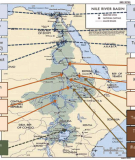The Nile River is the source of life for about 300 million residents of Africa in 11 different countries.
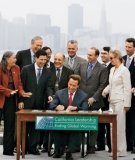
Date: Thursday, December 16, 2010 - 10:39
Governor Schwarzenegger signing AB 32 into law.It is great that California voters overwhelmingly defeated Proposition 23, the initiative that would not let AB32, the global warming law, go into effect unless the state unemployment rate falls below 5.5 percent. Californians sent a clear message that they support legislation to take on climate change, even though the federal government hasn't managed to pass a comprehensive climate and energy package.

Date: Thursday, December 16, 2010 - 05:43
Get Out of Jail FreeIn the wee hours of Saturday morning in Cancun at the UN Climate Conference, delegates managed to agree to a set of decisions. They are not enough to limit warming to 1.5 degrees Celsius, but they do allow negotiations to continue for another year under the auspices of the multilateral, consensus-based process of the UN.

Date: Monday, December 13, 2010 - 15:32
At the international climate negotiations it is easy to get discouraged and wonder if the efforts of civil society can really influence the process. A success on the penultimate evening of the negotiations made all of the days of despair worth it. Two decisions agreed to by all countries improve the terms of reference for the Clean Development Mechanism Executive Board members and expand the criteria against which standardized baselines would be evaluated. We, along with our friends in the Climate Action Network , a coalition of over 500 international environmental groups, had been lobbying for these improvements the past two years.

Date: Thursday, December 9, 2010 - 15:56
Hydropower, a dinosaur technologyThe large number of industry lobbyists running around the climate talks
makes one wonder whether it's a venue to hammer out a deal to save
the planet or if it's an industry trade show. You can bet that the
hydro industry is here in full force. They managed to get an interview
on the UN's climate change video channel espousing myths about hydro
being clean and green.
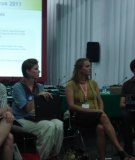
Date: Tuesday, December 7, 2010 - 21:59
The CDM Watch TeamToday I attended the advisory board meeting of CDM Watch. Two years ago, International Rivers, along with other NGOs that are critical of the CDM, found funds to restart CDM Watch. In two short years it has been very successful at being a thorn in the side of the Clean Development Mechanism (CDM) Executive Board, influencing policy making in the EU on quality restrictions on the use of offsets in the European Union Emissions Trading Scheme (ETS), and running capacity-building workshops for NGOs and communities living in countries that host CDM projects.
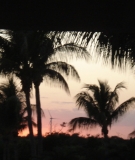
Date: Monday, December 6, 2010 - 14:02
Sunset in Cancun at the end of the first week.The first week of negotiating has passed, so it is a good time to take stock of new developments in the negotiations as they relate to the Clean Development Mechanism (CDM) and new market-based mechanisms. On Saturday, chairs of the two tracks of negotiations brought out new texts. One track covers the Kyoto Protocol, which focuses on emissions reductions targets for developed countries post-2012, when the first commitment period of the Kyoto Protocol ends. The other track is aimed at ensuring that the United States takes on a comparable effort, since it has not ratified the Kyoto Protocol, and also looks to expand the scope of the Protocol. Additionally, the technical wing of the UN climate office makes recommendations, as well. As you can imagine, there are many meetings happening in parallel!
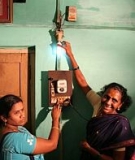
Date: Sunday, December 5, 2010 - 11:23
Energy-efficient CDM Light Bulb Project, IndiaThe Climate Secretariat of the UN puts its PR machine into gear every year with its "CDM Changing Lives Photo and Video Contest." Is it a way for the the UN to spruce up the image of the Clean Development Mechanism (CDM) and deflect criticism?

Date: Friday, December 3, 2010 - 16:04
Every year at the Climate Conference, the Executive Board of the Clean Development Mechanism (CDM) holds a meeting with the public. This year was no different. After giving a brief presentation on the issues they had been working on this past year, the Chair of the Board opened up the floor to questions from the audience.

Date: Sunday, November 28, 2010 - 22:37
Resistance to El Quimbo dam by the local community.Beehive CollectiveInternational Rivers continues to submit comments to the Clean Development Mechanism (CDM) Executive Board pointing out problems with proposed hydropower CDM projects. Most recently, I prepared comments on the El Quimbo Project on the Magdalena River in Colombia. This megadam, 400 MW at full capacity, is neither additional nor does it promote sustainable development.

Date: Thursday, November 11, 2010 - 14:28
The idiocy of carbon credits.Nitrozac and Snaggy - joyoftech.comThe Independent Evaluation Group (IEG), a wing of the World Bank charged with assessing the Bank's activities, has advised the Bank to stop buying carbon credits from hydropower projects because "it has minimal impact on project bankability". We've known all along that hydro credits are NOT additional.

Date: Wednesday, September 8, 2010 - 02:14
Bujagali FallsIn the past month, International Rivers has submitted comments on the applications to the Clean Development Mechanism for two nasty hydro projects: Bugajali Dam in Uganda, and Bonyic Dam in Panama. Our local partners have been active in opposing these projects on environmental and social grounds.
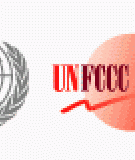
Date: Monday, May 24, 2010 - 11:13
This week the Clean Development Mechanism (CDM) Executive Board is meeting to discuss a number of issues. Of interest to International Rivers are the discussions around project-by-project additionality, treatment of environmental laws in host countries, a future CDM appeals procedure and enhanced communication with stakeholders.
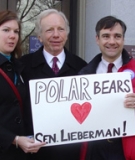
Date: Wednesday, May 19, 2010 - 12:42
Polar Bears Love Joe?Last week, Senators John Kerry (D-MA) and Joe Lieberman (I-CT) unveiled their draft climate legislation titled the American Power Act. Similar to the Waxman-Markey Bill that made its way through the House of Representatives, this bill has weak targets and relies heavily on offsets.The targets are much weaker than what the science demands. The near-term target, 17% below 2005 levels, translates to only 4% below 1990 levels. Yet the most recent science calls for global emissions to peak around 2020!The bill allows up to 2 billion offsets, equivalent to almost 30% of 2005 emissions. Domestic offsets are slated to account for 75% of offsets, while international offsets, including the CDM, would account for the rest. If the domestic supply is too small to meet demand, then the quantity of international offsets can be increased. Domestic offsets are not discounted, while entities would have to turn in 1.25 international offsets for each unit of greenhouse gas pollution.
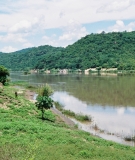
Date: Tuesday, April 27, 2010 - 18:37
By Payal ParekhDownstream Dam SiteSouthern African energy ministers are meeting later this week to discuss their regional renewable energy strategy, which includes accessing the Clean Development Mechanism (CDM). Apparently, the Mphanda Nkuwa hydro power project in Mozambique plans to register under the CDM.

Date: Sunday, April 11, 2010 - 06:28
After the failure of Copenhagen, countries are meeting in Bonn this weekend to pick up the pieces and see if there can be an agreement that truly reduces emissions to keep global temperature rise in check. The primary goal of this meeting is to schedule negotiations for the next two years.
Date: Monday, March 29, 2010 - 12:27
Last week the Clean Development Mechanism (CDM) Executive Board (EB) met in Bonn. A number of interesting decisions were taken that I highlight below.

Date: Friday, March 26, 2010 - 15:45
ECXInternational Rivers welcomes the news that the London-based European Climate Exchange, a leading carbon trading market, continues to ban the trade of carbon credits from large hydro from the Clean Development Mechanism (CDM).

Date: Saturday, March 13, 2010 - 10:12
A new study appeared in the scientific journal Environmental Science and Technology that has documented significant methane emissions from a temperate hydropower reservoir in Switzerland. The field and modeling study found that the 90-year-old Wohlen See reservoir in central Switzerland is a very significant source of methane, almost entirely due to bubbling sediments. The total methane emission from Lake Wohlen was on average > 150 mg methane m2/day, the highest ever documented for a midlatitude reservoir.

Date: Friday, February 12, 2010 - 14:50
While there has been a lot of attention on whether Washington will pass climate legislation soon, the state of California did back in 2006. Assembly Bill 32 (A.B. 32) requires greenhouse gas emissions to return to 1990 levels by 2020 in the state. This target is much weaker than what climate science calls for, but it is a start and the bill does have some good provisions in it. For example, the bill focuses on policy measures to achieve the majority of the reductions, such as clean energy, clean transportation and efficiency standards. Market-based cap and trade is only responsible for 20% of reductions.
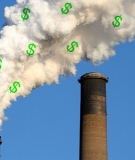
Date: Thursday, February 4, 2010 - 16:14
Investigative reporter Mark Schapiro's most recent article, "Conning the Climate" provides an inside look into how Clean Development Mechanism (CDM) projects are validated and verified, as well as the many problems that arise.
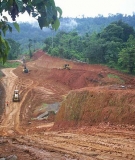
Date: Thursday, January 14, 2010 - 19:25
Florencio QuinteroYet again a project by AES, one of the world's largest power companies, didn't manage to make it past the validation stage in the CDM approval process. International Rivers is very pleased, as this project, the Changuinola Dam in Panama, is particularly damaging. The project is located in the buffer zone for the La Amistad UNESCO Biosphere Reserve and has resulted in the forcible displacement of 1,000 Ngobe people. If this project would have been registered, it would have legitimized a project rife with social and environmental abuses. The fact that this project is being built without receiving any income from the CDM shows that it is clearly not additional (see the extensive comments submitted to the CDM from International Rivers and others).
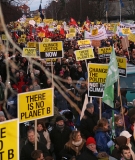
Date: Monday, December 21, 2009 - 02:09
Demands for Climate JusticeBen PowlessThe disappointing conclusion of the climate negotiations in Copenhagen reinforced how little rich countries, which have caused climate change, are willing to do to ameliorate its impacts and limit warming. Essentially the United States cut a deal with a handful of nations and then shoved this deal down the rest of the world's throat. Even during President Obama's press conference, he admitted that it wasn't legally binding and that it wasn't enough to limit warming to under 2 degrees Celsius (we should note that over 100 countries are calling to limit warming to under 1.5 degrees).
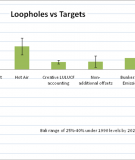
Date: Friday, December 18, 2009 - 07:30
Here in Copenhagen, a lot of the discussion has been around the lack of ambition coming from developed countries. There has been little discussion of long-term finance to meet the mitigation and adaptation needs of developing countries. With regards to the emission reduction targets, they are adding up to a mere 11-17% below 1990 levels, despite the fact that the most recent science is calling for emission reductions of at least 40% below 1990 by developed countries. A leaked draft of a document prepared by the UNFCCC secretariat found that the current pledges commits the world to a 3 degree warming. It also found that developing countries will actually reduce emissions more than developed countries!

Date: Monday, December 14, 2009 - 03:42
At the Bella Center, home of the COP15 negotiationshttp//:www.international-club-copenhagen.blogspot.com/It's halftime at the climate negotiations in Copenhagen. Thus it is a good opportunity to analyze what happened last week and discuss what we can expect in the coming week, with a focus on the Clean Development Mechanism (CDM) and new proposed trading schemes.
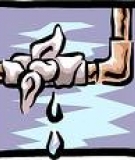
Date: Tuesday, December 8, 2009 - 17:40
The big story of the first two days at the climate negotiations in Copenhagen has been the leaked Danish text. It is a secretly negotiated draft agreement that only a few countries had a hand in drafting, including Denmark and the United States. Developing countries are up in arms, as it serves the interest of developed countries.
Date: Tuesday, December 1, 2009 - 07:44
Creators of the “Story of Stuff”
released a great video entitled the “Story of Cap and
Trade.” It takes a critical look at this market-based mechanism,
which is incorrectly touted as the solution to climate change.
Cap and trade schemes are based on
setting a limit to pollution. Allowances to pollute are distributed
to industries. At the end of the year, industries must turn in
pollution allowances equivalent to the amount they polluted. Those
that polluted more than the number of allowances they received at the
start of the year can purchase additional allowances from entities
that polluted less (where the trade comes in). It sounds reasonable
enough, but the devil is in the details. The caps are
often set too high due to industry pressure, allowances
are given away rather than auctioned, and they include a major
loophole, offsets. The use of offsets allow polluters to emit above the cap!

Date: Friday, October 16, 2009 - 14:39
3Gorges Reservoir SatThe Three Gorges Dam during construction viewed from a satellite in July 2003. Photo © European Space Agency (http://www.peopleandplanet.net/doc.php?idA new study that appeared in the Journal of Geophysical Research found that marshes created by the construction of the Three Gorges Dam emitted methane, a greenhouse gas twenty five times more potent than carbon dioxide. The emissions potential of created marshes hadn't been investigated until then.
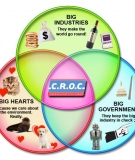
Date: Tuesday, September 15, 2009 - 16:25
A hilarious website that exposes the idiocy of offsets went live today. It is aptly called thecroc.org, with C.R.O.C. standing for Carbon Regulatory Offset Committee.

Date: Wednesday, August 12, 2009 - 13:51
Doublecounting - a case of shoddy bookkeepingIt shouldn't have been a surprise that the world's largest historical emitter of greenhouse gases would make a convoluted argument to show that counting the purchase of an offset towards its financial obligation is legitimate and should not be considered doublecounting (for an explanation see my earlier blog). But this is exactly what the US's lead negotiator did during a briefing the United States held for environmental NGOs.

